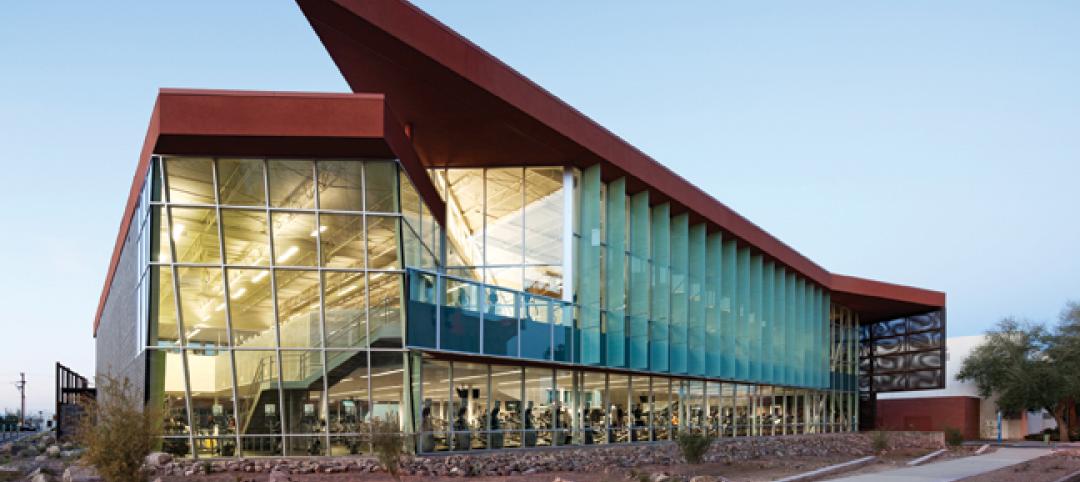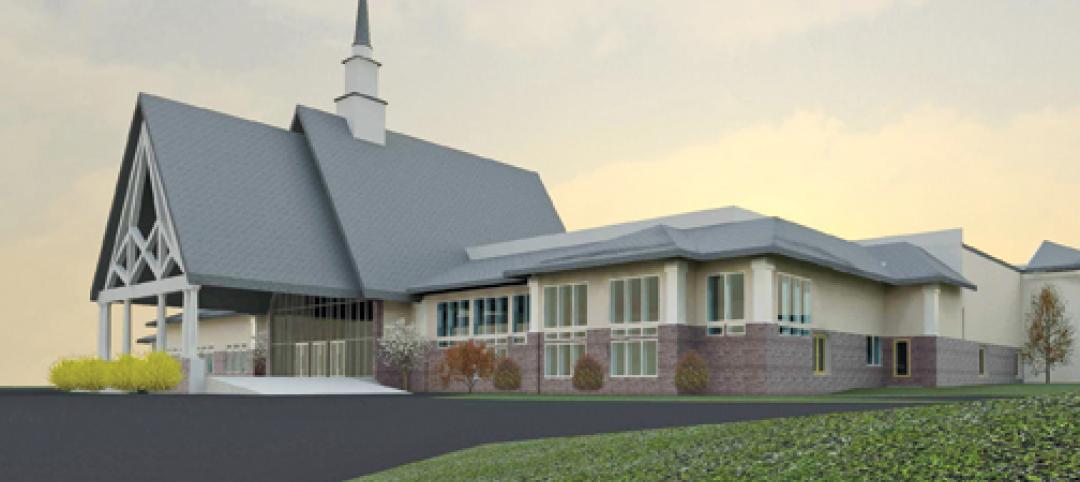Perkins Eastman and BLT Architects (BLTa) have recently announced their merger, effective February 1, 2022.
Perkins Eastman, which now has 1,100+ employees in 24 studios worldwide, has worked on projects on five continents in 60 countries. Its award-winning portfolio reflects expertise in healthcare, senior living, large-scale mixed use, higher education, K-12, hospitality, and workplace design as well as planning, urban design, and strategic consulting. BLTa, now known as “BLTa—A Perkins Eastman Studio,” has built an exceptionally strong integrated architecture and interior design firm of 41 professionals with deep roots in Philadelphia. With a studio in Pittsburgh for the last 27 years, Perkins Eastman has built a strong presence throughout Pennsylvania, especially in Western Pennsylvania. The addition of the BLTa studio strengthens the firm’s presence in the eastern part of the state as well. In merging with BLTa, Perkins Eastman enhances its expertise in mixed-use, multi-family residential, hospitality, workplace, higher education, historic renovations, adaptive reuse conversions, resorts and gaming, and transit-based projects.
“We are very pleased that BLTa has joined us and we now have a strong partner in Philadelphia. We have had the opportunity to get to know BLTa over the last several years and believe they bring significant skills and experience to our national practice. Moreover, we have always had important clients in Philadelphia, eastern Pennsylvania, and the adjacent states, and with BLTa we can now better serve those that want a combination of our national expertise combined with experienced local delivery and service,” says Brad Perkins, FAIA, chairman and co-founder of Perkins Eastman.
“We are thrilled to be merging with Perkins Eastman,” says Michael L. Prifti, FAIA, managing principal of BLTa, who joined the firm in 1982, back when it was known as Bower Lewis Thrower/Architects. “This union will give us the opportunity to serve our national clients in jurisdictions where we don’t currently practice. Perkins Eastman has new markets we’ve never touched. And with more feet on the ground, we can more easily and geographically serve our clients,” he says. Prifti also notes this merger will give BLTa’s architects and designers opportunities to diversify their projects and continue to grow as professionals.
Recent award-winning properties within the BLTa portfolio include: The Stephen Girard Building, where the firm revealed and preserved elegant design elements, integrating a 236-key Canopy by Hilton hotel within East Market, the one-million sf, ongoing transformation of a three square block area; The Bourse, a 380,000 sf adaptive reuse renovation of the first commodities exchange hall in the United States; and One City, an adaptive reuse project that converted an 1899 Renaissance Revival office building into a market-rate apartment building. Each of these properties won a Grand Jury 2021 Preservation Achievement Award given by the Preservation Alliance for Greater Philadelphia. The Stephen Girard Building and One City also won AIA Philadelphia Awards in the Historic Preservation/Adaptive Reuse Built category, and The Bourse won AIA Pennsylvania’s top prize – a Silver Medal. Hospitality Design magazine named Live! Casino and Hotel Philadelphia among the Best Hotel Openings of 2020. Live! Casino Pittsburgh, another BLTa design, also opened in 2020.
Shawn Basler, co-CEO and executive director of Perkins Eastman, notes that combining Perkins Eastman’s 40 years of global experience with BLTa’s 60 years of local expertise and relationships creates a powerful combination. “They’ll be able to draw on our well-established market credibility and resources, as well as geographic reach, while we’ll be able to tap into their deep knowledge of the Philadelphia metropolitan region along with their considerable expertise.”
Related Stories
| Nov 9, 2010
Designing a library? Don’t focus on books
How do you design a library when print books are no longer its core business? Turn them into massive study halls. That’s what designers did at the University of Amsterdam, where they transformed the existing 27,000-sf library into a study center—without any visible books. About 2,000 students visit the facility daily and encounter workspaces instead of stacks.
| Nov 9, 2010
Turner Construction report: Green buildings still on the agenda
Green buildings continue to be on the agenda for real estate owners, developers, and corporate owner-occupants, according to the Turner 2010 Green Building Market Barometer. Key findings: Almost 90% of respondents said it was extremely or very likely they would incorporate energy-efficiency improvements in their new construction or renovation project, and 60% expected to incorporate improvements to water efficiency, indoor environmental quality, and green materials.
| Nov 5, 2010
New Millennium’s Gary Heasley on BIM, LEED, and the nonresidential market
Gary Heasley, president of New Millennium Building Systems, Fort Wayne, Ind., and EVP of its parent company, Steel Dynamics, Inc., tells BD+C’s Robert Cassidy about the Steel Joist Manufacturer’s westward expansion, its push to create BIM tools for its products, LEED, and the outlook for the nonresidential construction market.
| Nov 3, 2010
First of three green labs opens at Iowa State University
Designed by ZGF Architects, in association with OPN Architects, the Biorenewable Research Laboratory on the Ames campus of Iowa State University is the first of three projects completed as part of the school’s Biorenewables Complex. The 71,800-sf LEED Gold project is one of three wings that will make up the 210,000-sf complex.
| Nov 3, 2010
Park’s green education center a lesson in sustainability
The new Cantigny Outdoor Education Center, located within the 500-acre Cantigny Park in Wheaton, Ill., earned LEED Silver. Designed by DLA Architects, the 3,100-sf multipurpose center will serve patrons of the park’s golf courses, museums, and display garden, one of the largest such gardens in the Midwest.
| Nov 3, 2010
Public works complex gets eco-friendly addition
The renovation and expansion of the public works operations facility in Wilmette, Ill., including a 5,000-sf addition that houses administrative and engineering offices, locker rooms, and a lunch room/meeting room, is seeking LEED Gold certification.
| Nov 3, 2010
Sailing center sets course for energy efficiency, sustainability
The Milwaukee (Wis.) Community Sailing Center’s new facility on Lake Michigan counts a geothermal heating and cooling system among its sustainable features. The facility was designed for the nonprofit instructional sailing organization with energy efficiency and low operating costs in mind.
| Nov 3, 2010
Seattle University’s expanded library trying for LEED Gold
Pfeiffer Partners Architects, in collaboration with Mithun Architects, programmed, planned, and designed the $55 million renovation and expansion of Lemieux Library and McGoldrick Learning Commons at Seattle University. The LEED-Gold-designed facility’s green features include daylighting, sustainable and recycled materials, and a rain garden.
| Nov 3, 2010
Recreation center targets student health, earns LEED Platinum
Not only is the student recreation center at the University of Arizona, Tucson, the hub of student life but its new 54,000-sf addition is also super-green, having recently attained LEED Platinum certification.
| Nov 3, 2010
New church in Connecticut will serve a growing congregation
Tocci Building Companies will start digging next June for the Black Rock Congregational Church in Fairfield, Conn. Designed by Wiles Architects, the 103,000-sf multiuse facility will feature a 900-person worship center with tiered stadium seating, a children’s worship center, a chapel, an auditorium, a gymnasium, educational space, administrative offices, commercial kitchen, and a welcome center with library and lounge.
















